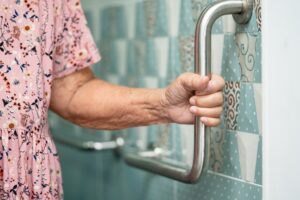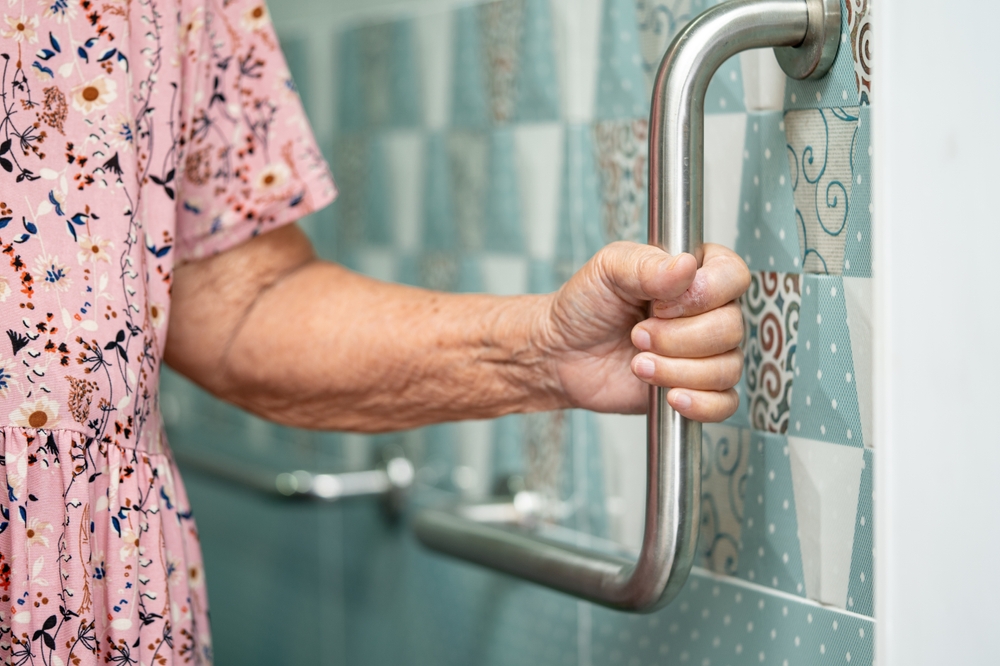Living in the comfort of their own homes seems ideal for most seniors. However, as your parents or loved ones age, they face higher risks of falls, injuries, and medical emergencies. Their home is often not set up to ensure their safety or promote independence at this stage in their lives.
If you’re a caregiver to a senior parent, it’s essential to help create an environment in which both you and your elderly parent can thrive. This article will discuss practical tools and tips to set you up for success.
Ensuring Home Safety for Seniors Through Emergency Preparedness
Ensuring a home is safe for seniors involves preparing for emergencies. This way, if there is an accident, there are established protocols to ensure help is delivered as soon as possible.
Setting Up Medical and Home Security Systems
It is important to ensure the home is equipped with medical and security systems at all times. A medical alert system is essential for seniors living alone, especially those with chronic conditions. These systems can call for help at the push of a button. Make sure they are easily accessible to seniors, and that seniors are certain of how to use them, allowing them to react quickly in emergencies, even if they’re frightened or in a hurry.
Home security systems including motion sensors, security cameras, and alarm systems can provide an additional layer of security and protect against intrusions. They also allow for immediate responses to security breaches, calling on external help to aid seniors.
Creating an Emergency Phone List
Develop an emergency phone list with contact information for family members, neighbors, and local emergency services. Ensure the print is large enough to be able to read quickly during a crisis.
Some essential numbers to include:
- 911
- Healthcare provider
- Family
- Friends
- Neighbors
Exterior Home Safety Tips for Seniors
Be aware of the home’s exterior potential hazards like loose steps, uneven walkways, and overgrown foliage or wet, slippery leaves. During winter months, keep walkways clear of snow and ice, and be sure to test the ground before assisting your elderly parent or senior out of the house or car.
In warmer months, ensure adequate lighting and remove any potential tripping hazards. Slip-resistant materials are a good safety precaution for walkways and steps.
Interior Safety Home Safety Tips for Seniors

Safety in General Living Areas
- Ensure all living areas are well-lit to prevent falls
- Use nightlights in hallways and bathrooms
- Reduce trip hazards by securing loose rugs, removing clutter, and ensuring electrical cords are out of walkways
- Store frequently used items within easy reach to minimize the need for climbing or stretching
Kitchen Safety
- Use appliances with automatic shut-off features to prevent burns and fires
- Keep flammable items away from the stove, and use timers when cooking
- Install smoke detectors and ensure they are functioning correctly
- Store sharp objects and hazardous materials safely
- Don’t wear loose clothing or clothing with long sleeves
Bathroom Safety
- Install grab bars near the toilet and in the shower or bathtub
- Use non-slip mats in and out of the tub to prevent falls
- Organize toiletries and medications for easy access
- Consider installing a walk-in tub for additional safety
Bedroom Safety
- Removing clutter and ensuring clear pathways
- Use nightlights to illuminate the path to the bathroom
- Consider a bed rail for additional support when getting in and out of bed
Living Room Safety
- Secure loose rugs with non-slip backing or double-sided tape
- Arrange furniture to allow for clear, unobstructed pathways
- Keep the area tidy and free of clutter to reduce the risk of trips and falls.
Hallways and Stairways Safety
- Keep hallways and stairways well-lit
- Secure handrails on both sides of the stairs
- Ensure carpets are firmly fixed to prevent slipping
- Install stair treads or non-slip strips for added safety
Garage and Laundry Room Safety
- Keep tools and supplies organized and out of the way
- Ensure proper ventilation to prevent the buildup of fumes
- Regularly check for fire hazards such as lint buildup in the dryer and flammable materials stored near heat sources
Outdoor Safety
- Check for uneven paths
- Secure railings on steps and porches
- Install motion-sensor lights to enhance visibility and deter intruders
- Keep walkways clear of debris
- Ensure walkways are well-lit at night
Leveraging Technology for Senior Safety
GPS Trackers
Technology can significantly enhance elderly home safety. GPS trackers can provide real-time location updates, allowing caregivers to quickly locate and assist their loved ones, especially if a senior has a tendency to wander.
Hearing Aids
Additionally, advanced hearing aids feature noise reduction and directional microphones that help seniors stay connected and aware of their surroundings. These hearing aids make it easier for seniors to hear alarms, doorbells, and other important sounds that are vital for their safety.
Smartphones
Smartphones can be equipped with emergency features like one-touch dialing and location sharing. It’s important to teach seniors living at home how to use these features effectively so they can reach out for help whenever they need it.
Products to Aid Seniors for Daily Living
Consider the following modifications to enhance the safety and accessibility seniors have in their homes:
- Walk-in bathtubs
- Stairlifts
- Grab bars
- Raised toilet seats
- Non-slip mats and rugs
- Adjustable beds
When to DIY Home Safety and When to Call a Professional
Some home safety improvements can be handled by DIY efforts, such as installing grab bars or securing rugs. However, for more complex modifications like installing a stair lift or major electrical work, it’s best to call a professional to ensure safety and compliance with regulations.
Americare Is Here for You
Creating a safe home environment for seniors involves a combination of proactive measures and ongoing vigilance. By following these home safety tips for seniors, you can help your aging parents live independently and comfortably while minimizing the risk of accidents and emergencies.
Every day Americare helps seniors living in New York to age comfortably from their own homes. We guide elderly individuals and their children or non-relative caregivers through our NHTD and CDPAP programs, providing more independence and familiarity.
Reach out to us for expert guidance in finding the best setup and support for your aging parents, and make your home a safer place for your loved ones.

